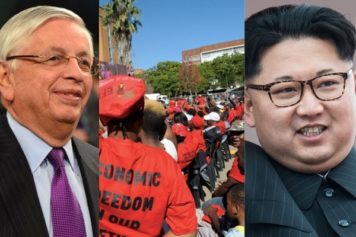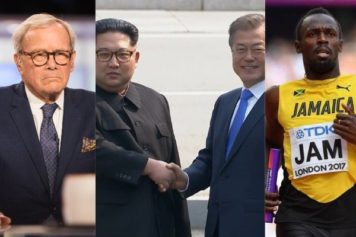North Korea is at it again. This time, flexing its muscle in the wake of tough, new U.N. sanctions by vowing to conduct another nuclear test in an effort to build up its capability of striking the United States, “the sworn enemy of the Korean people.”
The North Korean threats, which many experts expected, came after the U.N. Security Council on Tuesday unanimously passed a resolution that tightened sanctions on North Korea. The resolution also condemned a Dec. 12 rocket launching as a violation of earlier resolutions that banned the country from conducting any tests involving ballistic-missile technology.
But with North Korea, sanctions usually serve to push it to further extremes.
Through its new, untested leader, Kim Jong Un, North Korea issued statements that might be considered worrisome from a country that is taken more seriously on the world stage.
He said his country would not give up its nuclear weapons until “the denuclearization of the world is realized.”
In a statement issued through state-run media, the National Defense Commission, the country’s highest governing agency headed by Kim, said that “a variety of satellites and long-range rockets which will be launched by the D.P.R.K. one after another, and a nuclear test of higher level which will be carried out by it” will be “targeted” at “the U.S., the sworn enemy of the Korean people.”
Using the acronym for the North’s official name, Democratic People’s Republic of Korea, the statement was intended to show the world that the country would not be deterred by sanctions or warnings. These are attempts by Kim Jong Un to show the world that his country is no weaker since he came to power after the death of his father, Kim Jong Il, in December 2011.
Kim Jong Un, shocked the world last month when North Korea successfully launched a long-range rocket that put a satellite into orbit, defying restrictions imposed by the U.S., China and the rest of the world and dramatically resetting the nature of North Korea’s relationship with its Pacific neighbors.
The North Koreans said the satellite, called Kwangmyongsong-3, is equipped with “survey and communications devices essential for the observation of the Earth.”
This successful launching came after the spectacular failure of a rocket launch in April made North Korea an international laughingstock. After four unsuccessful rocket launches beginning in 1998, that was the first time North Korea tried twice in the same year and the first time in frigid winter.
The move was interpreted by experts as a strong statement by the young leader intended not only for the rest of the world, but also for the citizens of North Korea. It was a sensitive time for him domestically — he just fired many senior military officials and replaced them with his own people.
When North Korea tried to launch the rocket in April, it killed a deal with the United States to provide thousands of tons of food aid to its citizens.
This was deplored by British Foreign Secretary William Hague, who said North Korea “has chosen to prioritize this launch over improving the livelihood of its people.”
While China, perhaps North Korea’s only real ally, has been somewhat tepid in its criticisms of the country in the past, its reaction to last month’s launch was surprisingly strong. Saying he “regrets” the launch, Hong Lei, China’s Foreign Ministry spokesman, added that North Korea’s right to a peaceful space program was “subject to limitations by relevant United Nations Security Council resolutions.” The New York Times reported the language was tougher than China has used on that subject in the past.
As North Korea now boasts that it will test a nuclear weapon very soon, the question is whether the country has the technology to put a nuclear bomb on a long-range missile.
Citing preparations at the Punggye test site in northeastern North Korea, Army Col. Wi Yong-seob, deputy spokesman of the Defense Ministry of South Korea, said on Thursday, “North Korea can conduct a nuclear test as soon as its leadership makes up its mind.”
It appears that Kim, despite recent hints of economic changes and openness in North Korea, is following the same pattern as his father: a cycle of a rocket launching, United Nations condemnation and nuclear testing.
“It’s a major test for Kim Jong Un,” said Koh Yu-hwan, a North Korea specialist at Dongguk University in Seoul. “Unlike the rocket launching in December, which the North has said was conducted because it was his father’s dying wish, a nuclear test will be Kim Jong Un’s decision, one for which he will be held responsible.”
According to The New York Times, in the phrase a “nuclear test of higher level,” North Korea most likely meant that it was trying to develop the technology to build nuclear warheads small enough to mount on long-range missiles.
Glyn Davies, Washington’s special envoy on North Korea, warned Thursday that a nuclear test would be “a mistake and a missed opportunity” for North Korea.
“This is not a moment to increase tensions on the Korean Peninsula,” said Davies, who was visiting Seoul to coordinate the North Korea policies of President Obama’s second-term administration and the incoming government of President-elect Park Geun-hye in Seoul.
On Thursday, the North expressed bitterness at China and Russia’s endorsement of the United Nations resolution, denouncing “those big countries” as “failing to come to their senses.”


